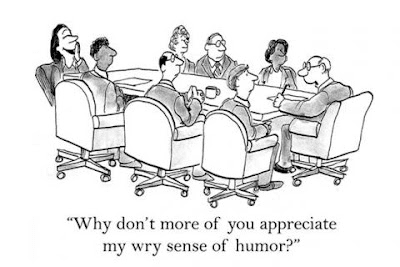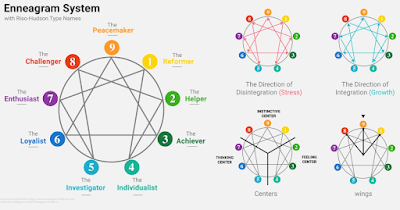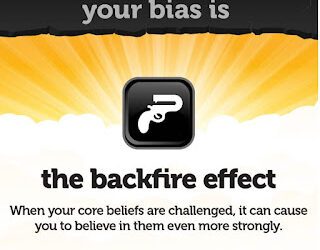The previous articles in this series each focused on a specific principle from the book Influence: Science and Practice. Because of the narrow focus, the practical tips were limited to things that fit squarely into a single category; however, many of practical aspects of persuasion relate to more than one principle. Here’s a few more ways to apply the previously discussed principles to apologetics and evangelism.
Service
Acts of service can have an incredible impact on the way people view you. Depending on who you serve, who you serve with, what you do, and how you do it, service can use the principles of liking, reciprocity, commitment and consistency, and authority. Shoveling your neighbor’s driveway will help him like you and feel the need to reciprocate, but there is so much more you can do with service. You can invite people along with you to do service projects, which will increase liking and authority (unless you’re a jerk when you serve 😃). If it’s a service project through a Christian organization, then the service project can be the first step in commitment that can lead to further actions and conversations such as coming to a church service with you or an apologetics event.
People won’t see every act of service you do, but you can build a reputation as someone who willfully and joyfully serves others. Doing so will make it much more likely people will listen when you have spiritual conversations, or better yet, it will lead them to ask you about your religious beliefs. The one thing, by far, that has led more people to ask me about my life is being a foster and adoptive parent. Don’t adopt just to have more opportunities to do apologetics. If you’ve already thought about it, this can be just one more reason. If that’s not for you, doing something else that requires as much commitment can be just as effective.
Word Choice
As apologists, we tend to think that the only thing that matters is the content of our arguments and the evidence. While this is the way it should be, it doesn’t work that way. The individual words we choose to make our case can have tremendous impact either for or against our case. In fact, even individual words make a big difference in the way people perceive our message. Don’t believe me? Watch the clip below from the show Brain Games, which replicates the results of a psychological study.
How does this apply to evangelism? Our words can either make people defensive or help keep them open-minded. Be careful with negative words towards other people or their beliefs. This may get you applause from other Christians, but will harm your case with non-Christians (I call this the apologist’s dilemma and will write on it next week). Referring to other people’s beliefs as absurd, their religion as a cult, or using any sort of put-down language (even if true in the technical sense) will automatically lead to defensiveness and inhibit rationally thinking ability. J. Warner Wallace and Sean McDowell do this very well (probably one of the reasons their writing a book together).
Humor
Most apologetic discussions or talks I have seen tend to be very serious. This isn’t bad in anyway, but it does mean there is plenty of room to incorporate more humor into apologetics. Humor can help in many ways. It can help take the edge off of tense situations, diffuse defensiveness, make you more likable, and prevent people from getting bored so they are more engaged. Craig Hazen does this wonderfully if you want to see how it can be done. Just be careful that you don’t use too much humor because it can be a distraction, reduce your authority, or send the signal that the content is not important.

Kindness and Communication Style
1 Peter 3:15 says to do apologetics with gentleness and respect. Colossians 4:6 says to always let your speech be seasoned with salt. Basic kindness and respect go a long way, but how to do it is not always obvious, and sometimes it’s hard work. When you meet someone, ask them their name and then remember it! Say please, thank you, sorry, I agree, your’re right, etc. at every opportunity. Listen carefully to what people say, and instead of responding immediately, paraphrase what they said to make sure you understood properly. Ask questions, not just with then intent of trapping someone in a contradiction, but to find out more about what they believe. You can also ask questions about their family or personal life. Using “I” statements rather than “you” statements will avoid the perception of blame and prevent the other person from feeling attacked.
Weirdness
This can work for and against you in equal measures, so be careful how and when you use it. Basically, if you look or act weird, people are going to be less likely to respect you as an authority or trust what you say. This could refer to the way you dress, your hairstyle and color, facial hair, tattoos, piercings, or anything else. On the other hand, all of these things may also be signals that you are part of a certain in-group, in which case, they will give you credibility (this relates to social proof and authority). I have tattoos, but I typically keep them covered. If I am talking to someone else with tattoos, then I will probably mention mine and maybe even show them off. Unless you are actively involved in a specific sub-culture that highly values a unique appearance, I would err towards the norm and probably even more towards the appearance of an authority.
Mere Exposure
People are reluctant to accept things they’ve never heard of before, especially when it challenges their fundamental beliefs about the world. The notion that religious beliefs can be explored rationally and scientifically is so odd to many people that it literally makes no sense to them. People need to be exposed to the idea that religion can be based on evidence, probably several times in a non-confrontational way, before they are able to process and accept the arguments. This is the primary reason I started Apologetics Awareness: to just make people aware of the possibility there can be evidence for faith. Just putting the idea out there that apologetics is a thing and they can investigate it on their own can sometimes be enough to aid in future conversations, even if they never actually check it out.
Conclusion
As Christians, we believe that everlasting life only comes from the grace of God for those who believe in Jesus, while those who don’t believe will receive everlasting punishment. The stakes are extremely high. If we truly love others, we will want to do everything we can to help them believe in Jesus. Everything we do and say makes a difference. We don’t want to stress and worry about whether we did everything right (we never will), but we do want to prepare and practice so that we are always becoming better at sharing the gospel and doing apologetics. As apologists, we love science and use it to defend our faith. Let’s also apply it to how we defend our faith.
This concludes this specific series on the science of persuasion for apologetics, but I’m sure I’ll touch more on the topic in the future. My next article will discuss superheroes and apologetics, followed by one on the the apologist’s dilemma, which relates to a specific trade-off that can be tempting to new apologists.
Works Cited
Loftus, E. F., & Palmer, J. C. (1974). Reconstruction of automobile destruction: An example of the interaction between language and memory. Journal of verbal learning and verbal behavior, 13(5), 585-589. You can read an overview of the article here.



